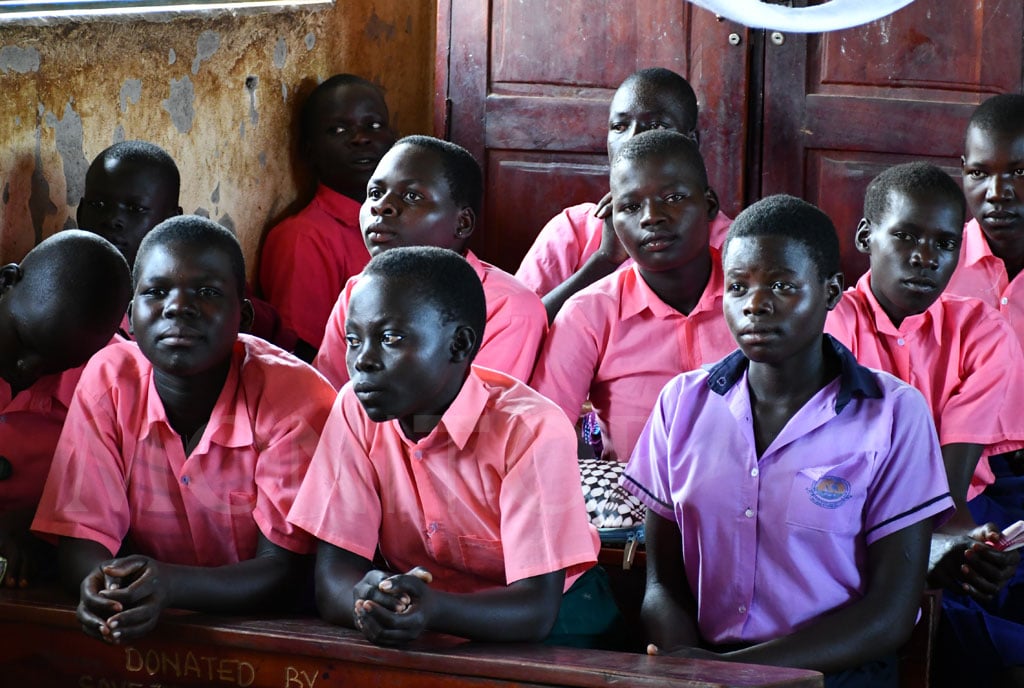Allocate more funds to UPE, USE schools

Pupils of Olwiyo Primary School in Nwoya District attend classes in May 2018. PHOTO/TOBBIAS JOLLY OWINY
What you need to know:
- The issue: UPE crisis.
- Our view: For both the UPE and USE to succeed, the government has to increase the amount of money it gives per child.
- The Shs10,000 can no longer cater for desks, classrooms, and latrines.
This week, this newspaper reported that the head teacher of Bumboi Primary School, a government-aided school in Bungokho Sub-county, Mbale District, was arrested after reportedly sending home 30 Primary Two pupils for failure to pay extra fees.
In her defence, the head teacher said she sent the pupils to go home and remind their parents to pay Shs10,000 PTA money. “Although the government guideline doesn’t allow us to charge extra fees, our parents agreed to pay the money,” Ms Mary Goretti Nelima said.
Universal Primary Education (UPE) was first introduced in 1997. Among the achievements it has registered is increased access to education, particularly among girls and underprivileged children.
However, the well-intentioned programme has faced numerous challenges. The Auditor General’s report for the period ending June 2023 indicates that shortages of classrooms, desks, pit-latrines, and teachers’ houses have been increasing over the last three years.
Lack of infrastructure in these schools is affecting the delivery of the programme objectives, including the quality education, pupil performance, dropout rates, staffing and infrastructure in the UPE schools, the report notes.
President Museveni has consistently cautioned school heads against charging fees in UPE and Universal Secondary Education (USE) schools, arguing that such practices undermine his efforts to eliminate illiteracy. However, critics of the programme say the Shs10,000 per child that the government gives is only a drop in the ocean.
Given the myriad of problems that UPE and USE schools face, parents have sometimes come up with solutions to supplement the meagre resources that they receive from the government. The Education Act, which establishes boards and school management committees, also allows parents to support schools.
But the confusion that has ensued given what the government is offering, versus what parents agree to supplement has left learners out of the classroom. Some pupils Daily Monitor interviewed this week revealed that they have resorted to working in people’s homes and gardens to make ends meet.
According to the National Planning Authority (NPA) about 40 percent of the youth in Uganda are neither in school nor employed. The majority of these are school dropouts.
For both the UPE and USE to succeed, the government has to increase the amount of money it gives per child. The Shs10,000 per learner can no longer cater for desks, classrooms, latrines and staff quarters.
Second, parents should be actively involved in the running of schools, especially through PTA meetings so that they have a say in the decisions that are made in the school management committees.
Finally, head teachers must not be held responsible for implementing what the school management committees have decided. Instead, the district education officers must ensure that whatever is decided in these committees adhere to the law.




